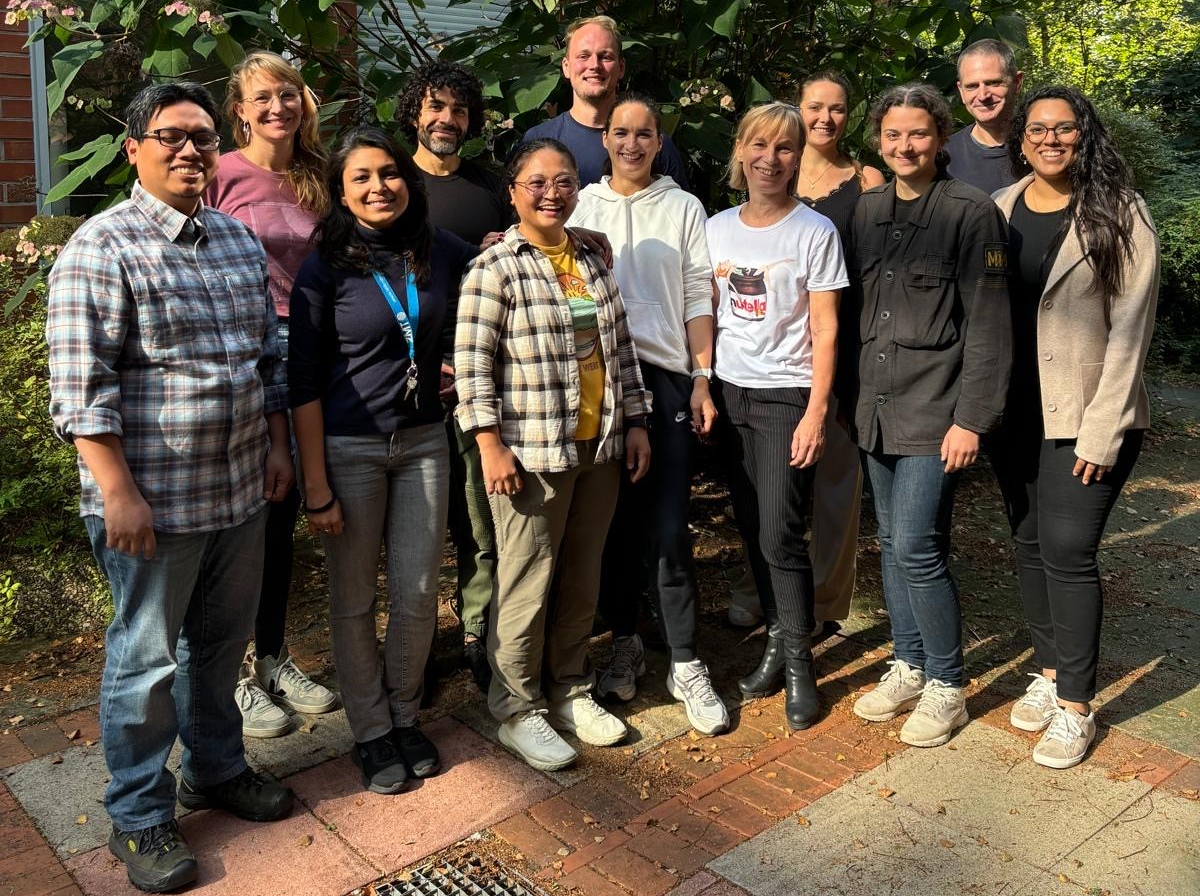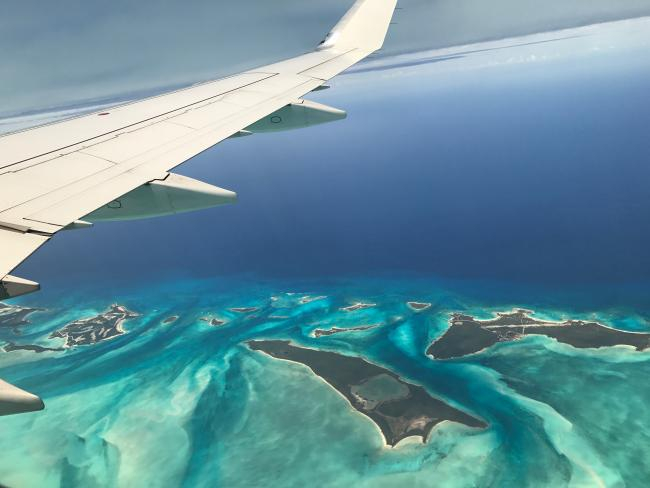Dieser Text ist zur Zeit nur auf Englisch verfügbar...
The effect of environmental change
Modern tropical marine ecosystems are generally oligotrophic and are dominated by calcifying photosymbiotic and photic organisms such as corals, algae and large benthic foraminifera, and to a lesser degree by heterotrophic carbonate producers such as molluscs or echinoderms. The complex structural framework as well as associated sediment production of coral reefs provide key geo-ecological functions such as habitat provisioning and coastal protection, beach nourishment, and island building or maintenance.
Among the many regional and global environmental changes experienced by oceans are the alternation of ocean chemistry and temperature, sometimes at rates exceeding those in historical and recent geological records. These alterations may affect organismal physiology, and especially calcification mechanisms of marine skeletons and shells, and lead to shifts in biological communities, changing sediment generation and accretion patterns. The global impacts of climate change (e.g., increased frequency/intensity of marine heat waves, ocean acidification and sea level rise), on marine biota interact with additional local environmental changes (e.g., increased terrestrial effluents of sediments, nutrients, or pollutants such as heavy metals and plastics of various sizes and chemical compositions). Ultimately, shifts in the benthic community composition can manifest in changes of sedimentation patterns, or carbonate production and erosion processes, and thereby diminish the important geo-ecological functions carbonate accreting ecosystems provide. As this can have severe consequences on the services of carbonate-building organisms and ecosystems, better knowledge on their resilience, i.e. resistance towards and potential to recover from such disturbances, is essential.
Carbonate secreting organisms play an important role in tropical ecosystems as they are able to shape their environment by building the reef framework to provide habitats for other organisms. Their role in coastal protection and for resource management is essential in particular in densely populated coastal areas due to attenuation of wave energy. The Geoecology and Carbonate Sedimentology Group focuses on the effect of environmental change on calcifying organisms, carbonate sediment production, transport and depositional processes. We also use carbonate sediments as paleo-ecological archives of the biotic composition of ecosystems or to characterise the recent status and the short- or long-term changes of such systems. Furthermore, we use certain carbonate producers such as photosymbiotic foraminifera as bioindicators for ecosystem state, or as model systems to study photosymbiosis, e.g. by experimenting on symbiont flexibility and bleaching under environmental stress.
For a better understanding of the impacts of changing environments to marine organisms and subsequent sedimentological processes, field studies are undertaken in areas of natural or anthropogenic extremes. These field studies may serve as analogues for scenarios predicted for the future scenarios. Correspondingly, remote and widely uninhabited field sites are used as references to study natural processes under minimal direct human impacts. They are complemented by laboratory experiments in the ZMT’s MAREE facility where single or combined stressors are changed under controlled conditions and their effects on different carbonate producers are studied using a set of different methodologies. These include a wide range of microscopy-based methodologies (e.g. light, fluorescence, and scanning electron microscopy, CT-scanning, thin-sectioning), physiological methods (e.g. calcification, metabolic rates, photosynthetic efficiency, enzymatic activity) or environmental characterisation measurements (e.g. pH, alkalinity, contents of organic matter or different nutrients). We have also recently expanded to apply novel ‘omics approaches (e.g. proteomics and metabolomics) to address impacts on the relationship between marine hosts (soft and hard corals or foraminifera) and their algal symbiont. This serves to better understand the bleaching process, i.e. the disruption of this symbiosis due to environmental stress such as increased sea water temperature. Integrating these diverse approaches and perspectives enables us to gain a better knowledge the small- to very large-scale changes caused by environmental disturbances, but also the processes involved in recovery or development of alternative ecosystems and their effects on the geo-ecological functions carbonate depositional ecosystem provide.

Members of the working group Geoecology and Carbonate Sedimentology (photo taken September 2024)
Further research projects
The Dynamics of Beach Loss under Changing Marine Climates
Accelerating anthropogenic input of CO2 into the atmosphere from fossil fuel consumption has caused an indelible imprint on ecosystems worldwide. This increase in CO2 has both physical and chemical effects on the ocean evidenced by global climate change (GCC; projected ocean warming) as well as increased absorption of CO2 into the oceans, causing ocean acidification (OA; projected decrease in pH). Climactic change has also been linked with the degradation of several important ecosystems, including instances of severe coastal land loss due to storm surge scouring of beaches. To better understand the link between biological processes of organismal physiology (individual calcification rates) with ecosystem processes (sediment dynamics), the project will characterise calcification rates of common reef-building large benthic foraminifera (LBFs) to upscale these measurements to reef-scale estimates of carbonate production through geospatially-referenced satellite imagery. These field-based experiments will be complemented with manipulative aquaria experiments of OA and GCC to further our understanding of how beach nourishment will be altered by climate change.
DFG SPP 1889 - Regional Sea Level Change and Society (PI)
https://www.spp-sealevel.de
OFEUS
As part of the DFG Cluster of Excellence "The Ocean Floor – Earth’s Uncharted Interface" led by University of Bremen (MARUM), this project focuses on the record of the climatic dynamics of the Red Sea in the Plio- to Pleistocene. It is part of the cluster's Research Unit RECORDER that deciphers climate signals from marine sediments. For this, Sediment cores are analysed for proxies for seawater parameters and for aridity. This project is a collaboration with the King Abdullah University of Science and Technology (KAUST) at Thuwal, Saudi Arabia.
Doctoral student: Bhakti Shah
Collaboration partners: Volker Vahrenkamp and Alex Petrovic (KAUST)
Further completed research projects
DFG-SPP-Projekt „Sea level changes in SE Asia"
Collaboration with University of Bremen (Co-PI Dr. Alessio Rovere)
https://www.marum.de/wir-ueber-uns/Sea-Level-change/Page2722.html#section10439





